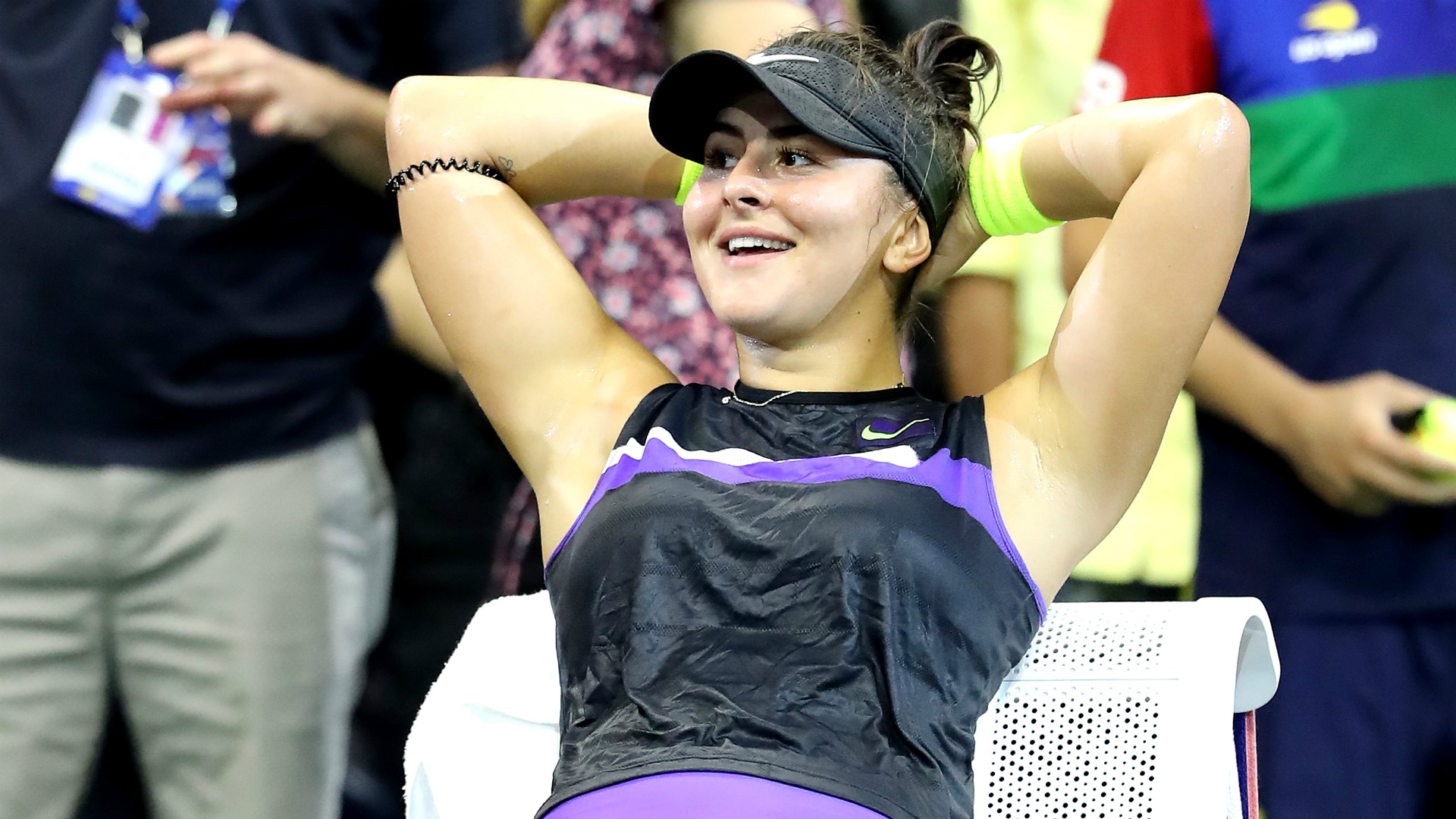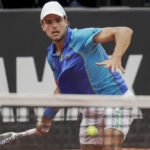US Open 2019: ‘Genius’ Medvedev’s different thinking has him on cusp of final
Nothing about Daniil Medvedev’s route to the US Open final has been ordinary, his commitment to thinking different paying huge dividends.

‘Think different’.
In 1997, Apple pushed that slogan in an advertising campaign launched well before it became a mobile communications behemoth.
Having only been born a year earlier, nearly 5,900 miles away from Silicon Valley, Daniil Medvedev may not be familiar with that part of tech history.
Medvedev, though, has become the living embodiment of the philosophy.
The Russian world number five was heading into a US Open semi-final on Friday, taking on Grigor Dimitrov for a place in the final. There has been very little normal about Moscow-born Medvedev’s route through to this point, everything about it has been different.
The first men’s semifinal is set…
Who’s your pick? #USOpen | @DaniilMedwed | @GrigorDimitrov pic.twitter.com/bndL7iM3CT
— US Open Tennis (@usopen) September 4, 2019
Boasting the biggest stadium in tennis and home to some extremely passionate locals, Flushing Meadows is a place capable of producing the kind of atmosphere players dream about playing in.
However, it is also a venue where nightmare experiences are possible, with many players taking exception to behaviour in the stands when the late-night New York crowd gets a little too invested in proceedings.
Medvedev is not like those players, though, and has instead thrived in the face of a sustained level of heckling many would have buckled under.
Amid a disagreement with an umpire in his third-round match with Feliciano Lopez, Medvedev was seen to aim a middle-finger gesture at the crowd. It was shown on the Louis Armstrong Stadium big screen and vociferous booing followed as Medvedev was cast in the role of villain.
He was still able to close out the victory but took part in a post-mach interview that was the antithesis of what is expected in the often-sterile on-court Q&A. The jeers were relentless and, in a situation where many would have pleaded with the fans to stop or cut the interview short, Medvedev soaked up the boos and thanked the crowd for them, praising spectators for giving him energy “to win the next five matches”.
Medvedev’s response was the same in the fourth round against Dominik Koepfer. Never has such a negative reception been so gleefully welcomed. The rocky relationship between Medvedev and the crowd proved mutually beneficial, as it provided fans with a hate-figure and Medvedev extra motivation to rile them up as he slogged his way through the draw.
A big milestone for Medvedev @DaniilMedwed defeats Wawrinka in 4 sets and reaches the semifinals in Flushing Meadows!#USOpen pic.twitter.com/alo3U8HZDI
— US Open Tennis (@usopen) September 3, 2019
Everybody loves to have a villain to hate. However, villains are more convincing when they have the game to back it up. It was the unique way in which he backed it up that turned the fans in Medvedev’s favour.
Facing Stan Wawrinka in the quarter-finals, Medvedev developed a problem with his left thigh. It was clear that movement was a huge issue. It would have been the end for most players, and Medvedev later conceded he thought it would spell the end for him.
However, he masterfully ensured it did not finish him off. Restricting his most intense movement for his own service games, Medvedev changed up his tactics superbly, relying heavily on drop shots and exquisitely placed lobs to work a 34-year-old Wawrinka around the court at will.
Even though the Swiss won the third set, the revised plan bore fruit as Wawrinka faltered badly in the fourth, though Medvedev was not happy to win in such a fashion.
“After the match, it was tough for me to express many emotions because I felt the way I won was quite ugly,” Medvedev said. “Because that’s what I had to do.”
It may have felt ugly from his perspective, but, from up in the stands, the speed and the effectiveness with which he altered his approach was a joy to behold, and he received a deserved standing ovation at the end of his last-eight triumph.
I know it’s been a couple of crazy matches…but in all seriousness, I you guys! I love playing here in NYC and really look forward to the semi-final@usopen pic.twitter.com/ZJtAitigeS
— Daniil Medvedev (@DaniilMedwed) September 3, 2019
Asked if he and the crowd are friends again, Medvedev replied: “Hopefully. It’s not for me to decide. What I got I deserved. Usually I’m not like this, as I was in the third-round match. I’m not proud of it. I’m working to be better.”
Medvedev’s is a redemption story nearing a fascinating conclusion that will come in the final if he defeats Dimitrov.
It may never be exactly clear why Medvedev felt the need to turn the spectators against him. On and off the court, he is an incredibly difficult player to read, even for his coach Gilles Cervara, who summed up his protege using another term adopted by Apple.
“It’s like to coach a genius,” said Cervara. “Sometimes a genius, you don’t understand them. It’s like this. They are different.”





